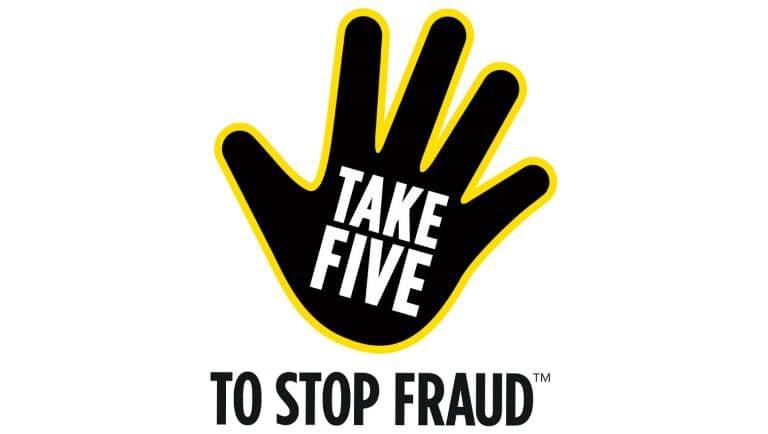
Impersonation scams
Scammers can impersonate someone you know or a well-known organisation. Once they’ve gained your trust, they trick you into sending them money or convince you they need to send a courier to collect your card and PIN, cash or valuable items.
How it could happen to you
- You get a message that seems to be from someone you know, asking you to send them money. They might say they’ve lost their phone and have a new number
- You get a message from a delivery company saying they have a parcel for you and you need to pay a fee to arrange or reschedule a delivery
- You get a call, email or text that looks like it’s from a company you trust, saying you need to make a payment. It might sound urgent, like an overdue bill or an issue with your taxes
- A caller claims to be from the police and says they’re investigating local bank staff. They ask you to withdraw cash to help with the investigation, and arrange for a courier to collect it from you
- Someone calls and says they’re from your bank. They say you need to send in your bank card, and offer to arrange for a courier to collect it. They trick you into revealing your PIN on the call, or say you need to send it with your card
- Someone impersonates your bank or the police and tells you your money is at risk. They say you need to move it to a new account to keep it safe.
How to protect yourself
- Be suspicious of unexpected requests for money. Remember that scammers use emails and texts to impersonate people
- Don’t click on links in unexpected messages, especially ones asking you to make a payment or give personal details
- If a company calls unexpectedly and asks you to make a payment, end the call. Scammers can keep your line open, so use a different phone to call the company and check if the request is genuine. Always get their number from a trusted source, like their website
- If you aren't sure a call is from us, and you have our app1, you can ask us to send you a notification to your app to prove the call is genuine
- Don’t reveal your PIN to anyone, and never enter it over the phone
- Never hand over your bank card, PIN, cash or valuable items to a courier. Be suspicious of anyone who asks you to do this
- Think twice if someone tells you to withdraw and give them large amounts of cash
- Remember that the police don’t ask the public to help carry out investigations
- Don’t believe anyone who says you need to move your money to keep it safe. Only a scammer would say that
- Never give remote access to your computer or device to someone who has called you unexpectedly
- Remember – an official company or organisation would never ask you to pay for something by buying items like vouchers, jewellery or gold.
What does it look like?
We've written some stories that show what impersonation scams might look like. They describe common tactics we know scammers use, based on insights from our fraud and scams team.
Types of scams to watch out for
These are among the most common tricks currently used by scammers but they constantly come up with new ways to contact you, so be vigilant.

Impersonation scams
When someone pretends to be the police, a bank, a friend or business, to convince you to send them money.

Investment scams
When you’re invited to invest in things that are worthless, or don’t exist.

Purchase scams
When fake or non-existent items are advertised for sale.

Advance fee scams
When fake companies ask for an upfront fee and then don’t provide the service you’ve paid for.

Invoice scams
When account details on an invoice are changed, or emails are intercepted, so the money is wrongly paid into the scammer’s account.

Romance scams
When someone pretends to be interested in a romantic relationship with you. They gain your trust and then ask for money.

Pension scams
A scammer says they can make you money, and convinces you take a lump sum out of your pension – then steals it.

Doorstep scams
A rogue trader knocks on your door and pretends your house needs work – then overcharges you for it and often doesn't finish the job.

Bereavement scams
A scammer contacts you after someone has died, and says you owe money to pay off a debt or access a payout.

Phishing, smishing, and vishing
You receive an email, text message, or call claiming to be from a well-known company or organisation such as a bank or the police.
You may also like…

Protect yourself from fraud
Learn about the different types of fraud
More and more people are being targeted by fraudsters, so it’s important to be alert. Knowing about the different types of fraud can help you protect yourself and your money.

Think you’ve been a victim?
How to report fraud or a scam
Find out what to do if you’re worried about a card payment, how to report fraud and scams and what happens after you tell us, plus get tips on how to help protect yourself.

Take Five to stop fraud
National awareness campaign
Take Five is led by UK Finance and backed by the Government and other organisations. If you receive a phone call, text or email you think might be fake, it urges you to stop – take five – and challenge what you’re told.

Make money work for you
Explore the ways we can help you start a new relationship with money, whatever your age.


